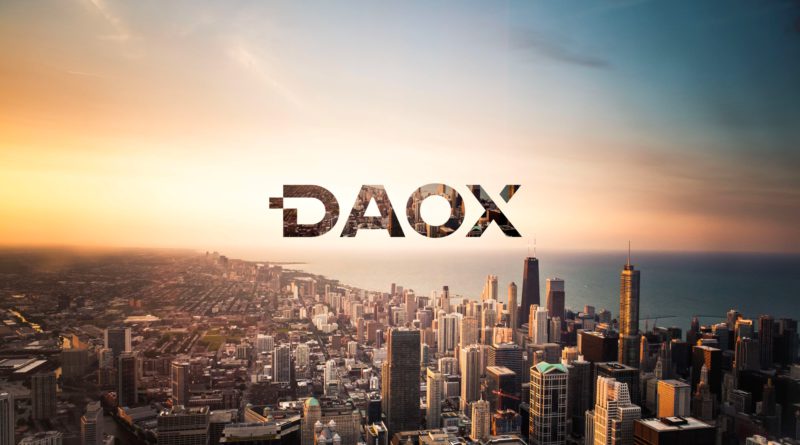2017’s ICOs was Just a Start. Here is What Will Happen Next
Blockchain technology and the new crypto economy offered tremendous opportunities for investing and raising funds. As an outcome, we can see a skyrocketing growth of Initial Coin Offerings (ICOs). But there are signs that something is wrong, and the proof is that Google, Facebook and Twitter together have banned all ICO and cryptocurrency-related advertising.
The reason for that is that the general public, with little or no previous experience in investing, got access to thousands of investment offers. Most people are simply not aware of how to evaluate startups and often become victims of ambitious promises or even scams. Many Experts expect at least 97% of all ICO startups will fail within the next couple of years.
So, what is the reason for the problem and how to fix it? First of all, let’s take a look at how the “real world” investing works. We can see that investors and startups actually interact via intermediaries which are legal entities. They also have contracts and laws to protect them.
Just think of what would have happened if VCs started to simply hand out boxes of cash right after the startup’s pitches. Obviously, the return on such investments would be unacceptably low. And we can say that something very similar happens around the majority of today’s ICOs.
Of course, when accredited investors and venture firms participate in ICOs they undertake all the necessary legal actions to protect their interests. But this approach does not really comply with the nature and the initial idea of ICOs—to make investing and fundraising easily accessible for everyone in the world. What is the point of developing breakthrough technologies and trying to fit them into the old framework? It is possible that blockchain smart-contracts could be the legal framework of the future.
The next issue is the current state of ICO tokens. Instead of raising the seed round, issuing equity or security tokens, entrepreneurs try to avoid regulations by structuring their tokens as utilities. The reason for that is that issuing a security in full compliance with the law is unaffordable for small pre-seed stage startups. As an outcome we see a speculative market full of useless tokens that are called utilities, but in fact were only issued to raise funds.
So the bottom line is this: a lot of changes need to be done in the way ICOs work.
That is why Daox is proposing an advanced open source technological solution and a unified protocol that aims to fix all these problems, preserving the benefits of crypto, raising the efficiency of capital, and establishing the basis for the future investment industry. This solution is called a Decentralized Autonomous Fundraising Organization or Fundraising DAO.
Fundraising DAOs play the role of advanced intermediaries between startups and their investors. They are like real world companies but instead of a legal body they have smart-contracts, instead of bank accounts they use cryptocurrencies, instead of shares there are tokens, and instead of the jurisdiction — a borderless blockchain network.
One of the main principles of that protocol is that all the collected funds are stored in a DAO, instead of being at the disposal of a single individual (or group of individuals). The funds are released based on withdrawal proposals submitted by the startup team. If investors (DAO token holders) of the startup are satisfied with the way the project unfolds, they approve such requests.
If the majority of investors do not see that the startup stick to its declared roadmap and obligations, they can simply vote for the refund. This functionality alone solves some of the major problems of ICOs and crowdfunding.
Not only can we get rid of scams because it is simply becoming unprofitable, but we also increase the success ratio due to the fact that the startup’s team is way more motivated. The Fundraising DAO protocol is basically replicating the way joint-stock companies work, while also preserving all the benefits of crypto and ICOs.
Each Fundraising DAO is modular. It means that its governance structure and functionality might be adjusted to the specific needs of different projects. For example, authors could set up a simple DAICO issuing utility tokens, or create an organization that will pay dividends, or even offer equity-based tokens. Imagine, building a DAO of blocks that are representing different features and functionality.
The whole process of building Fundraising DAOs and interacting with them is done in a user-friendly application called Daox Platform ( https://platform.daox.org/). Startups can build their DAOs, with their own ERC20 tokens and start ICOs in a matter of minutes. Besides that, there is a marketplace of services and tools that are integrated via the Daox Open API.
Imagine hundreds of different services for startups and investors that are easily accessible in a few clicks. For instance, a project can apply for rating report, or media publishing, or bounty campaign, or start banner advertising, right from the Daox Platform interface.
It is important to mention that Daox itself is not an intermediary, and it never has any access to the funds. Each Fundraising DAO is completely independent, autonomous and could be governed only by its token holders, while Daox Platform plays the role of a convenient interface for them.
While we live in a highly technological world and invest in so many inventions, we still did not have one for investing itself. We do not know whether Daox will reshape the way capital works, but it is very likely to become a major player in the investments industry, and it definitely will initiate the transformation process for ICOs.
www.daox.org

